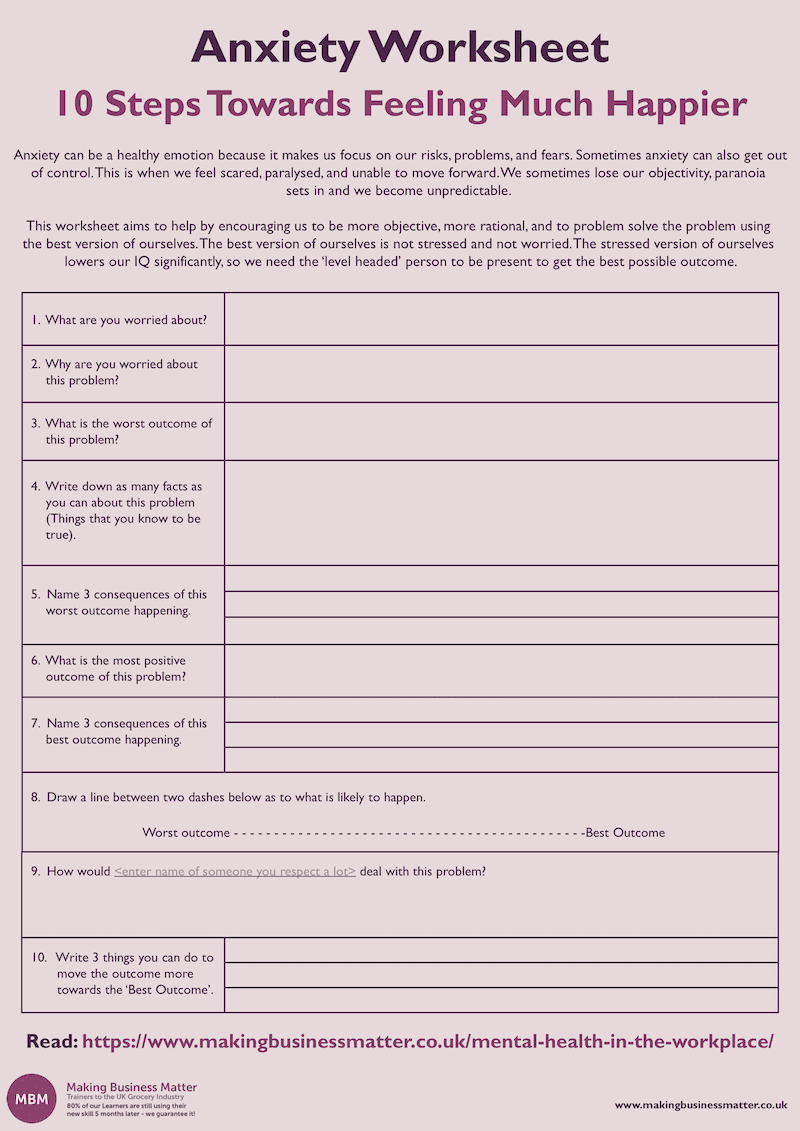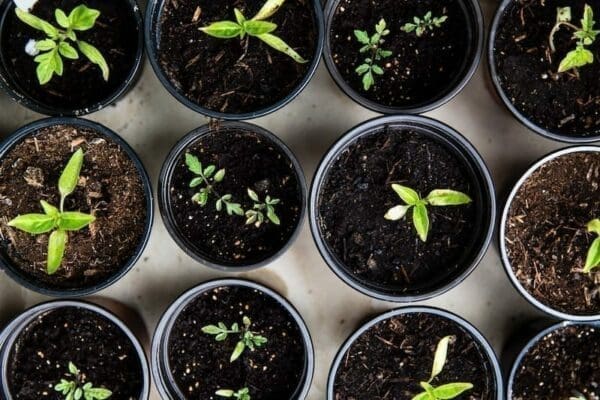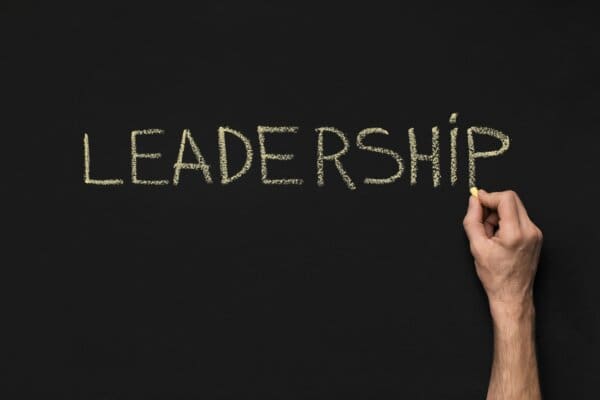Nurturing Emotional Wellbeing…
Beginning the journey as a new manager is exciting and nerve-racking. The difficulty can be that there is no particular point of reference for the individual. There will be many people who will provide their opinions and experiences. Maybe you are assigned a mentor. However, this is your journey, your successes have led you to this point, so the next steps are crucial. There are numerous elements that will hit you at this point. From impostor syndrome to placing personal pressure upon yourself. All of this potentially affects your mental and emotional wellbeing.
In this reflection, I consider the importance of emotional wellbeing from the point of a new manager and some techniques that may help. This is not to say that this is exclusive to this group, quite the contrary. I do witness, however, the lack of help that this group in particular receive.
Emotional vs. Mental Wellbeing
Emotional and mental wellbeing are interchangeable. However, some experts would state that these are fundamentally different. I would agree that the ‘mental’ element is the inner core that can be damaged. I am not a medical expert, and this reflection is not for that group of people. This piece is for people managers. It is for their experience as they begin their career journey.
Emotional wellbeing is impactful, it can be seen and it can be monitored by non-experts. This is the behaviour that is on show day in and day out. If the mental state declines in some way, this can present itself as anxiety or depression and is terribly stigmatised. An emotional state is just that, the behaviour playing out in front of you. When we notice this change in people, there is something we can help with or even look to help ourselves.

Know Your Emotional Strengths and Vulnerabilities
How well do you actually know yourself? When was the last time you sat down and thought deeply about you? What do you measure yourself against? I can’t answer that for you within the context of this reflection. I wouldn’t want to; these are questions for you. Other people are a source of information, but not always the best. On the positive, we get to hear some truths.
On the negative, it can feel uncomfortable listening to feedback, especially when it is not always qualified. Getting to know your emotional strengths and vulnerabilities is a tough ask, especially for a new manager. If you don’t do it and understand it, there will always be someone else to point these out to you. Get to know you. Know where you can increase your skill base to make your strengths excellent. Where you have vulnerabilities, share them.
I initially struggled with sharing my vulnerabilities with my team. The thought that they knew what my deficiencies are was uncomfortable. If we believe that behaviour is modelled, there is an opportunity to enhance the team. If we can truly state what we are both good at, and not, an element of trust enters the frame. We then know what all our gaps are, we can clearly see both the strengths and vulnerabilities.
Knowing strengths and vulnerabilities makes recruitment easier, allocating project work and where development can be provided. It also removes the anxiety that I am superhuman. As a manager, I know it all simply because of my job title. The old adage of ‘I wouldn’t ask someone to do what I can’t do myself’ is dead. Accept that you can’t be all things. What you can do, however, is support those who can through the skills and strengths you possess.
Free Worksheet to Help With Your Emotional Wellbeing:
Explore how you can take ’10 Steps Towards Feeling Much Happier’ with our Anxiety Worksheet. Click the image for a higher resolution:

Sticky Learning ® is 7 times more effective than 1-day training courses. Plus, you will get a Chain of Evidence proving your Return on Investment. Discover soft skills training that changes behaviours long term.

Emotional Self-Awareness
There is a point as a new manager, or even in a new role, that is beautiful in its naivety. Some people call this the honeymoon period. The first few months in the role where, even if you have been promoted from within, things just look different. This honeymoon period is a critical part of the journey towards being a manager. Self-awareness will allow for a wider vision of what is around you, and indeed, how you are. It is key to your emotional wellbeing. However, it’s an easy thing to state, ‘be self-aware’. Yet, it’s very difficult to bring ourselves to that point.
Management Development courses, coaches and mentors will tell us to reflect on our experiences. I have provided this advice myself, but let’s be realistic. How many new managers really take this on? How many really keep a journal of happenings and feelings? A new approach is required. One which meets the modern way of creating self-awareness.
The Role of Social Media
How many of us use social media to record the events and thoughts in our lives? We are bombarded with information stating that social media can cause so much damage. I don’t disagree with this, with any new concept come significant challenges. Social media is here to stay. The format will evolve, there is a general acceptance that this is now a part of our lives. Let’s use this tool for our self-awareness journey. Rather than reflective logs that follow a specific model, let us reflect on the here and now through social media.
Social media is a useful way of recording events and letting them pass. You don’t have to publish, just using the features allows ‘self-talk’. For instance, a private live conversation with friends, parents or even work colleagues through this medium is powerful. The art of reflection is changing.

Build Your Own Community
Self-awareness is a positive place to begin, if we know how we are, we can do something about it. Who do you go to when you want to discuss issues? Or, to ensure you are on the right track? There should always be a support structure in place for new managers, but this is rarely the case. Where none exists, look to build your own community. It doesn’t matter what this network looks like. It could be a few individuals who are in a similar situation as you from a training course or a closed Facebook group.
The main point here is that the people you choose in that community can help you. It is not a mutual moaning club; it is a community which looks to positively enhance each other. An opportunity to share ideas or solve issues is priceless, but it will need your energy to build.
Making the Right Connections to Improve Your Emotional Wellbeing
I was once asked to meet with a new manager who was very experienced in their field. This was a ‘get to know’ meet over a coffee aiding the manager to connect and speak with managers. During this, I asked him, ‘and how are you?’. His reply was that no one had asked him that. And, in fact, he was struggling to settle into the organisation.
One conversation, one meeting concluded in my mind that this manager needed help. He wanted to be there and was capable in his role. This was a case of the right connections. We agreed to meet for an hour weekly. Meanwhile, we worked on extending his circle. Linking with other new managers and people with similar skill sets and roles. While we agreed this helped, the work came from him. Simple actions like contacting HR and asking where other managers had been recruited recently could make all the difference.

Right Here, Right Now for Emotional Wellbeing
The importance of emotional wellbeing often points us to mindfulness. A practice that asks us to stop and do a self-check. A practice that asks us to focus on ourselves right here, right now. There is a significant amount of help out there. Apps such as Headspace and Calm are increasing in popularity. Books such as The Listening Space and The Resilience Club are contemporary tools, providing help in our everyday lives. Organisations are also changing too. They are providing private spaces for employees to go and be with themselves.
For managers to be productive and perform well, these aids are becoming more critical. Managers, especially new ones should take heed. Forget the old guard. The ‘old’ way of managing. Experiencing ‘burn out’ is as unhealthy as it is unnecessary.
Directing Your Focus
You will face pressures. Senior managers will expect results, and that expectation is justified. History will surround you everywhere you go. People will recount their great successes, often exaggerating for their own ego, or speak of calamities they never experienced. Ask yourself, “So what?” Is there anything in those stories that will help you make better decisions right now? Also, consider whether getting drawn into this will improve your emotional well-being. Likely, it won’t.
Learning from mistakes is a positive thing, but not at the expense of the work now. If this is allowed to happen, you will become a victim of what was, rather than what can be. As a manager, it is your role to shape the success of your outputs. Directing your focus onto the outcome is the critical step, distraction will only serve to slow you down and not deliver the results.
Directing your focus is a concept used in the excellent book ‘The Resilience Club’ by Angela Armstrong. Angela considers directing your focus as a habit to be practised. As with any habit or skill, if you don’t practice it, it will dissipate. Consider what are the vital few key actions that will bring around success. This could be specific actions or creating a smaller sub-team to concentrate on an outcome. Allow yourself time to consider the options, then put the plan in place.
Beware of the doubters, but don’t let them into your thinking or change your plans. If this is well thought through, and you can control the vital parts like your decision-making, then execute it.
Measure Yourself Against You for Positive Emotional Wellbeing
Being a new manager is tough, expectations are high, you clearly want to be a success for yourself. There is a universal truth that you own your own stress. There will be a lot to take in, new and existing people to manage. The fact is no one can do it all, this expectation needs to be set very early. Before you jump right into the work, consider yourself for a moment. It is very easy to look at the managers around you and state that they are better than you.
The fact is you don’t know their story, you don’t know what is inside their head. Are they better planners than you, better people managers than you, who knows? These kinds of questions are beyond your knowledge and control. Measure yourself against you.
We are often thrown ‘role models’ or told to be like a great leader. At the beginning of a management career, we get drawn into this view of fantastical leaders and their plights. Ask yourself, were they like that in the beginning? Was every day an outstanding performance? I stopped showing the pictures of ‘ideal leaders’ tens of years ago. It wasn’t helpful to new managers.
The image of that person stuck in their minds. How can we possibly measure up to top business leaders or enigmatic politicians? I often get challenged on this through the question ‘people need inspiration, these people are aspirational’. My answer is ‘aspire to excellence for yourself, against the skills and role that you have’. Practice compassion and focus, measure yourself against you and then take stock.

Mental Well-being
During the coronavirus, we are not just adapting our working styles to accommodate an unusual situation. This pandemic also requires us to physically detach from our networks and communities. If you’re not used to living and working in isolation, this lifestyle can significantly impact your mental health and well-being. These are my tips on how to support your mental wellbeing better during self-isolation. This will help you to stay happy, productive and focused.
My Personal Experience of Isolation
Four years ago, I experienced an exceptionally bad case of burnout. This, as a result of prolonged stress on both the home and work front. The fallout from this experience meant I was incapable of working for more than a year. Moreover, my associated health issues prevented me from leaving my home for much of this time.
I had to figure out my recovery largely on my own. As part of that process, I learned how to build stronger foundations to help me deal with isolation. The experience also helped me to build the relevant skills needed to survive and thrive in times of extreme stress and uncertainty.
Whilst the situation we now find ourselves in is far more serious, the feelings and emotions we are experiencing now are no different from what I went through. Here are some suggestions on what to watch out for in your day-to-day, and how to support yourself better so that you can cope when things get tough.
Be Ok With Not Being Ok
You may feel fine in yourself most days, you may even feel hopeful. That’s good. But at unexpected times, you’re going to have a wobble, or two, or three. You will feel fatigued, overwhelmed, unfocused, angry, tearful, grumpy or helpless. These feelings are a natural part of adjusting to our situation. Apart from being classic symptoms of Cabin Fever, our reactions are also a form of grief. We need to work through these feelings so that we can accept the ramifications of the crisis and the associated rules that also curb our sense of freedom.

The uncertainty of our situation, the alarming news we hear daily, and the fear of getting sick or losing a loved one, can all throw our brains into survival mode. And it’s tricky to make rational decisions or work productively when our anxiety levels are this high. As we realise and accept that the only place we will find certainty is within ourselves, the easier it becomes to manage our feelings of discomfort.
Learn to be kind to yourself during this process, as there will be days that feel impossible. However, please know that there is always another way to get through this. You can treat every day as a new opportunity to find your way and improve your coping skills.
(Note, if your mental health is suffering and you are unable to find your way, then please seek help – Mind mental health charity is a good place to start).
Build a Self-Care Toolkit for Your Mental Wellbeing
The simplest way to manage the health of our minds is to build rituals and routines into our days, which support our health and wellbeing. It doesn’t have to be hard. We can soothe our bodies and support our brains by doing small, short daily practices.
I found that the best way to cope with the ups and downs of an isolation rollercoaster is to build a self-care toolkit. Your toolkit should contain several go-to activities that you can call on in differing situations. This will help you change your physical and mental state when things get bumpy. These activities can help you feel more centred and comfortable, despite the discomfort you’re encountering.

Good sleep hygiene, daily movement, conscious breathing, optimal nutrition, and mindfulness practices such as journaling or meditation, are just a few examples. These are all things we know we ‘should’ be doing. Yet we often let them fall by the wayside when we feel stressed. We reach for the sugar and alcohol instead. But creating daily practices to move our body and support our mind does wonders for our vitality, stamina, mood and mindset. All of these are important when you’re trying to be focused and productive working from home in a crisis.
Another important tool in our self-care toolbox is the practice of loving-kindness. The language we use when talking to ourselves or others can have a powerful positive or negative impact on our immune system and mental wellbeing. Ditch the criticism, be kind, and find things to be grateful for, so that you can keep your energy and good vibrations high.
Stay Connected
Humans are wired for connection and struggle without community. Loneliness can be a damaging experience and one of the biggest risks we face when self-isolating. But even if we don’t have family staying with us, or we’re unable to physically meet up with our friends, we do have the luxury of the internet to help us stay socially connected.
Connecting online can be tiring for our brains though. Make considered decisions about who you want to spend that energy with. Is it hours on social media with people you’ve never met or regular Zoom calls with your loved ones?
Self-isolation also allows us to learn to connect with ourselves better. Through my experience of isolation, I learned to appreciate the importance and value of solitude. Being able to connect with myself more deeply, without input from other minds, helped me to develop my self-awareness, discover my resilience, and create the space for my creativity and thinking to flow.
Adapting During the Current Crisis
Learning to live well and support our mental wellbeing during an enforced period of isolation takes time and practice. We have the opportunity to do both during this crisis. Make it easier by starting small. What tiny ways can you be more present in your days?
About the Author
Mich Bondesio is a communications professional, business performance mentor, and founder of Growth Sessions. We recently interviewed Mich on the MBM Podcast about digital wellbeing and productivity in a time of crisis.
Final Thoughts
The way we work and the way we are training managers is changing. Still on offer are courses on handling difficult conversations, Time Management Training and such like. While offerings like these work in some instances, there is a significant need to change. New managers have their own challenges and an opportunity to shape the future. This future concerns our emotional wellbeing and that of those we manage. Contemporary leadership and management development should be exploring how we are. This starts with ‘how am I today?’
There seems to finally be an acceptance that our emotional wellbeing affects our whole selves every day. Yet, managers are still expected to bring forth resilience like a rabbit from a hat. Understanding ourselves takes time and quality development, a true understanding of the issues we have. If we can understand our emotional wellbeing, we have a solid starting point to build on.




